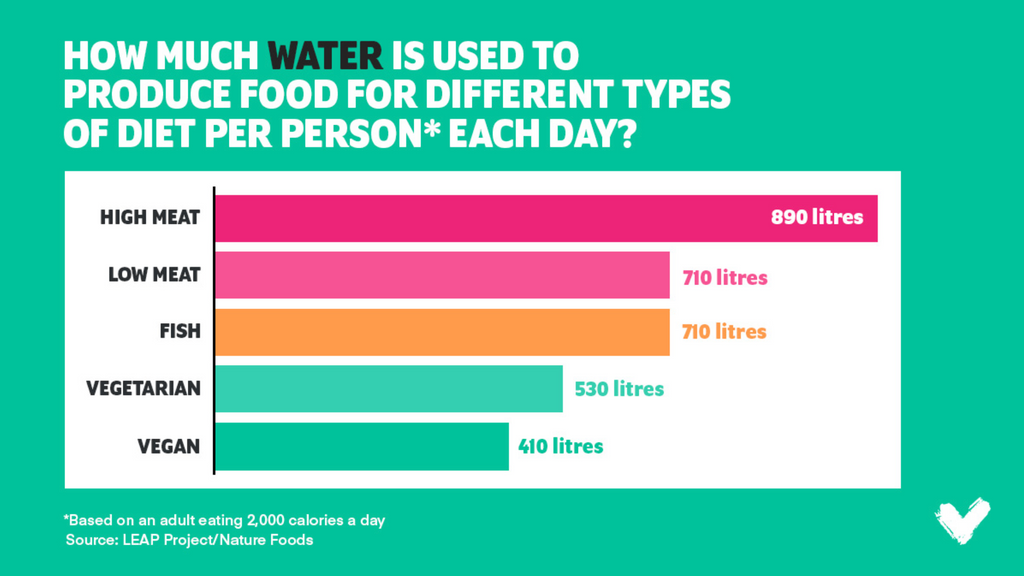One such choice gaining traction for its positive environmental footprint is adopting a vegan lifestyle. Going vegan isn't just a dietary choice but a powerful statement for a greener, more sustainable Earth.

Reducing Greenhouse Gas Emissions:
The United Nations Food and Agriculture Organization reports that animal agriculture contributes a staggering 14.5 percent of human-generated greenhouse gas emissions. This surpasses the emissions from all cars, planes, trucks, and trains combined.
By transitioning to a vegan diet, individuals can significantly reduce their carbon footprint, as plant-based foods generally have lower associated emissions compared to animal products.

Preserving Land and Biodiversity:
Animal farming demands a vast amount of land for grazing and growing feed crops. Astonishingly, 83 percent of our farmland is dedicated to animal farming, yielding a mere 18 percent of our calories. This inefficiency results in deforestation and habitat destruction, leading to a loss of biodiversity. By choosing plant-based alternatives, we can help preserve precious ecosystems and protect the world's biodiversity.

Mitigating Methane Emissions:
Methane, a potent greenhouse gas, is released in large quantities by farmed animals through their digestive processes and manure. Animal agriculture is a leading emitter of methane, contributing to global warming. Opting for a vegan lifestyle diminishes the demand for meat and dairy products, directly reducing methane emissions and lessening the environmental impact of our food choices.
Addressing Nitrous Oxide Emissions:
Beyond carbon dioxide and methane, animal agriculture is also responsible for nitrous oxide emissions. The breakdown of animal waste releases this potent gas into the atmosphere. Choosing plant-based alternatives reduces the demand for animal farming and, consequently, helps mitigate nitrous oxide emissions.
Conserving Water Resources:
Animal agriculture is a water-intensive industry, requiring vast amounts of water for livestock and crop production. Shifting to a vegan diet can significantly reduce the demand for water resources. Conserving water is crucial for sustainable agriculture and maintaining water ecosystems.

How Can YOU Help?
Choosing a vegan lifestyle is more than just a personal preference; it's a commitment to a sustainable and environmentally conscious future. With every plant-based meal, you contribute to the reduction of greenhouse gas emissions, the preservation of natural habitats, and the conservation of vital resources. In the journey toward a greener Earth, your plate becomes a powerful tool for positive change. The journey towards a greener Earth begins on our plates, and each vegan meal is a step towards a more sustainable and compassionate future.
Join Veganuary in January and make a difference!

Make some different food choices to help combat climate change. A little goes a long way....
Here are some suggestions:





You can make a big different every day by changing at least one of your meals into a plant-based option. Start small and increase over time - the planet will thank you for it!







